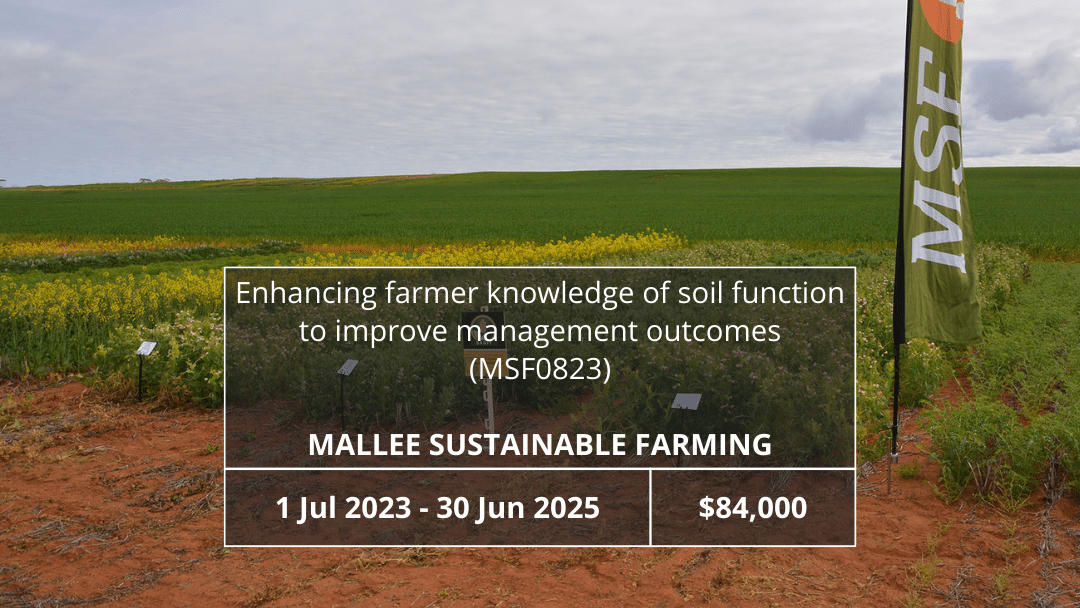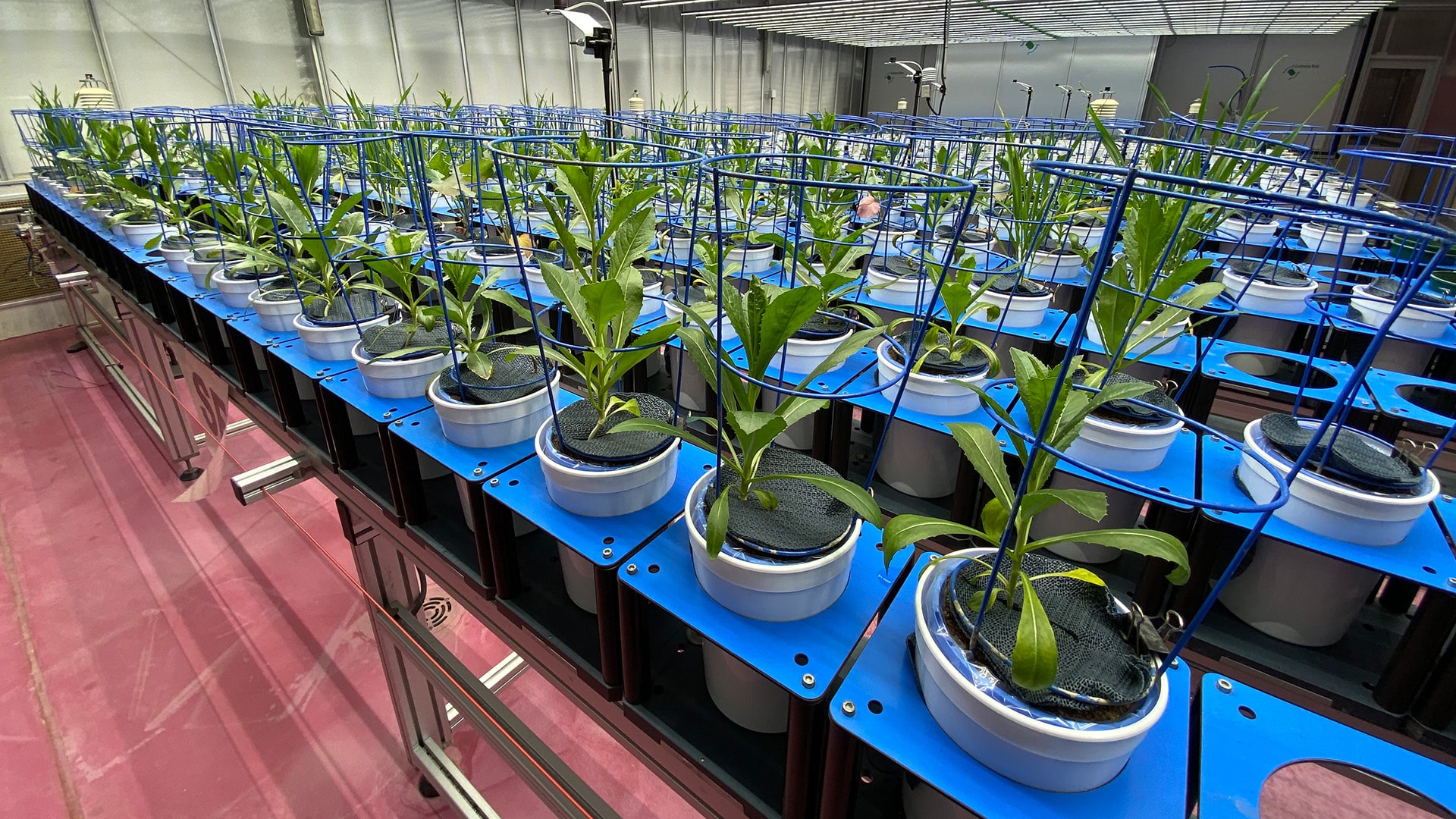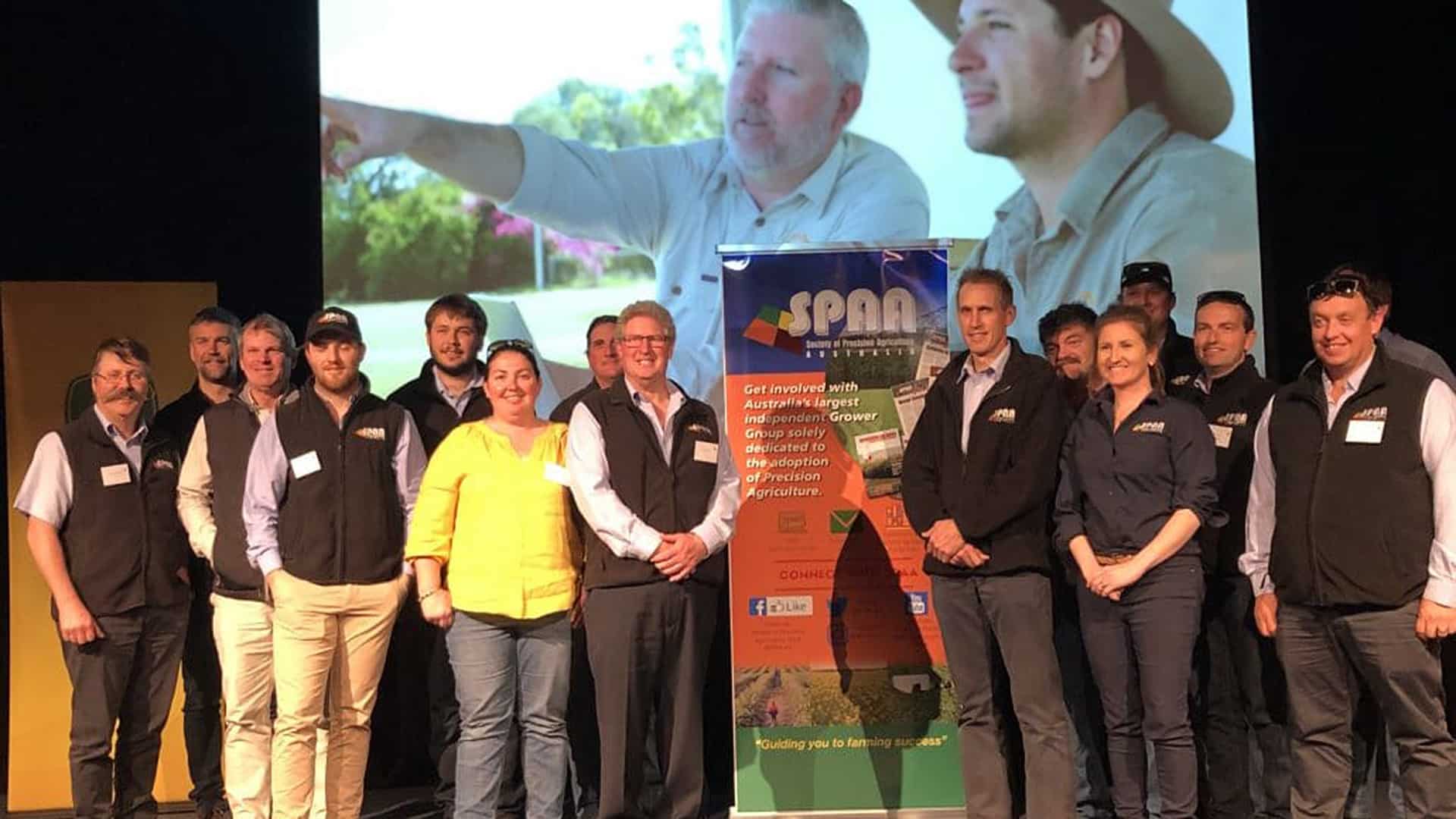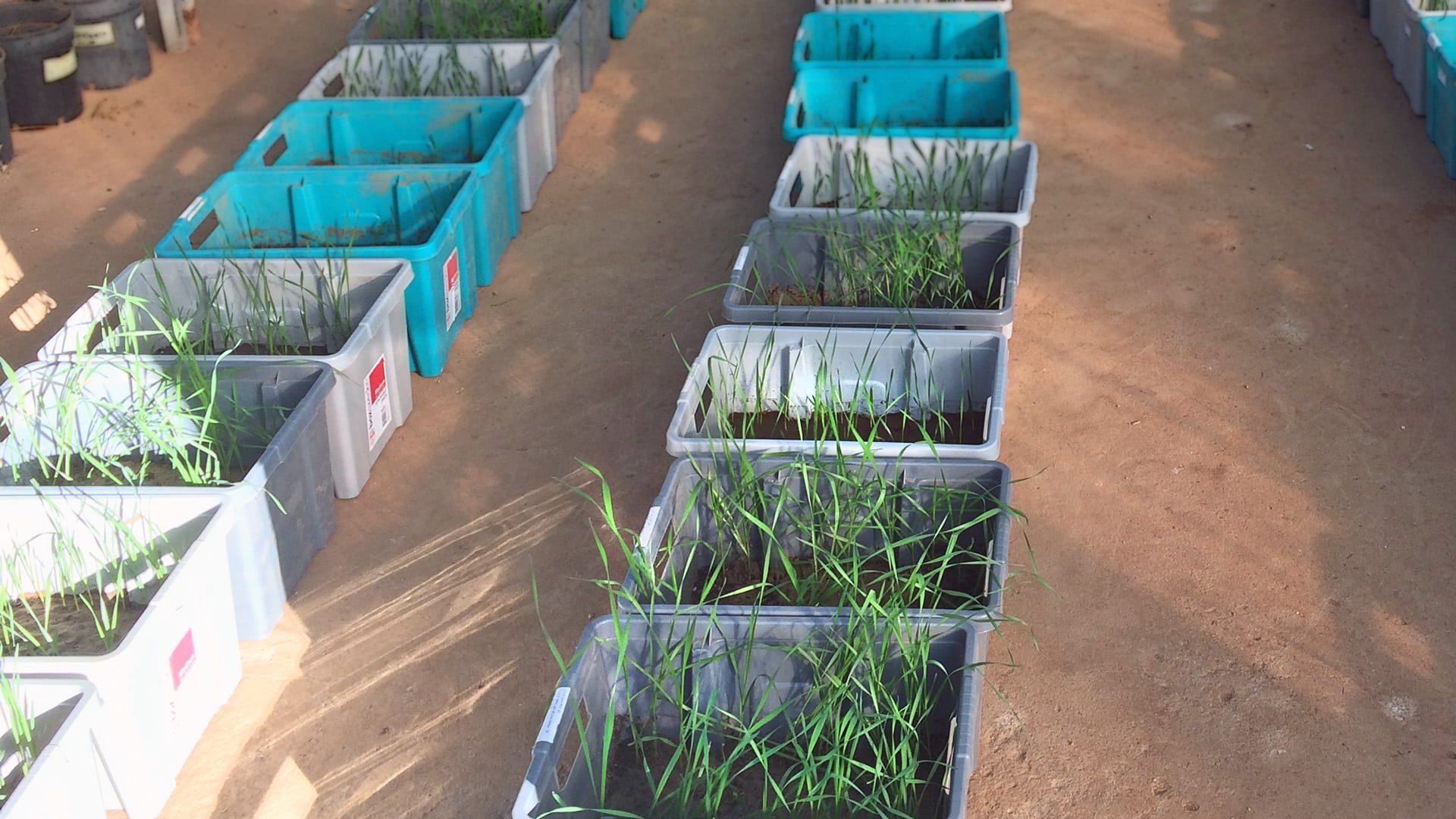START
FINISH

Summary
The focus for this project will be to produce a highly engaging and easy-to-read publication resource titled 101 questions about SA cropping soils you were never game to ask. This will help farmers identify and understand subsoil constraints, soil water dynamics and in turn make informed decisions to help them manage emerging soil related issues unique to SA cropping environments.
Project Participants
Jay Cummins, Mallee Sustainable Farming
The research
The focus for this project will be to produce a highly engaging and easy-to-read publication resource titled 101 questions about SA cropping soils you were never game to ask. This will help farmers identify and understand subsoil constraints, soil water dynamics and in turn make informed decisions to help them manage emerging soil related issues unique to SA cropping environments.
Funding
$84,000
More information
Jay Cummins
T: 0418 818 663
E: [email protected]



